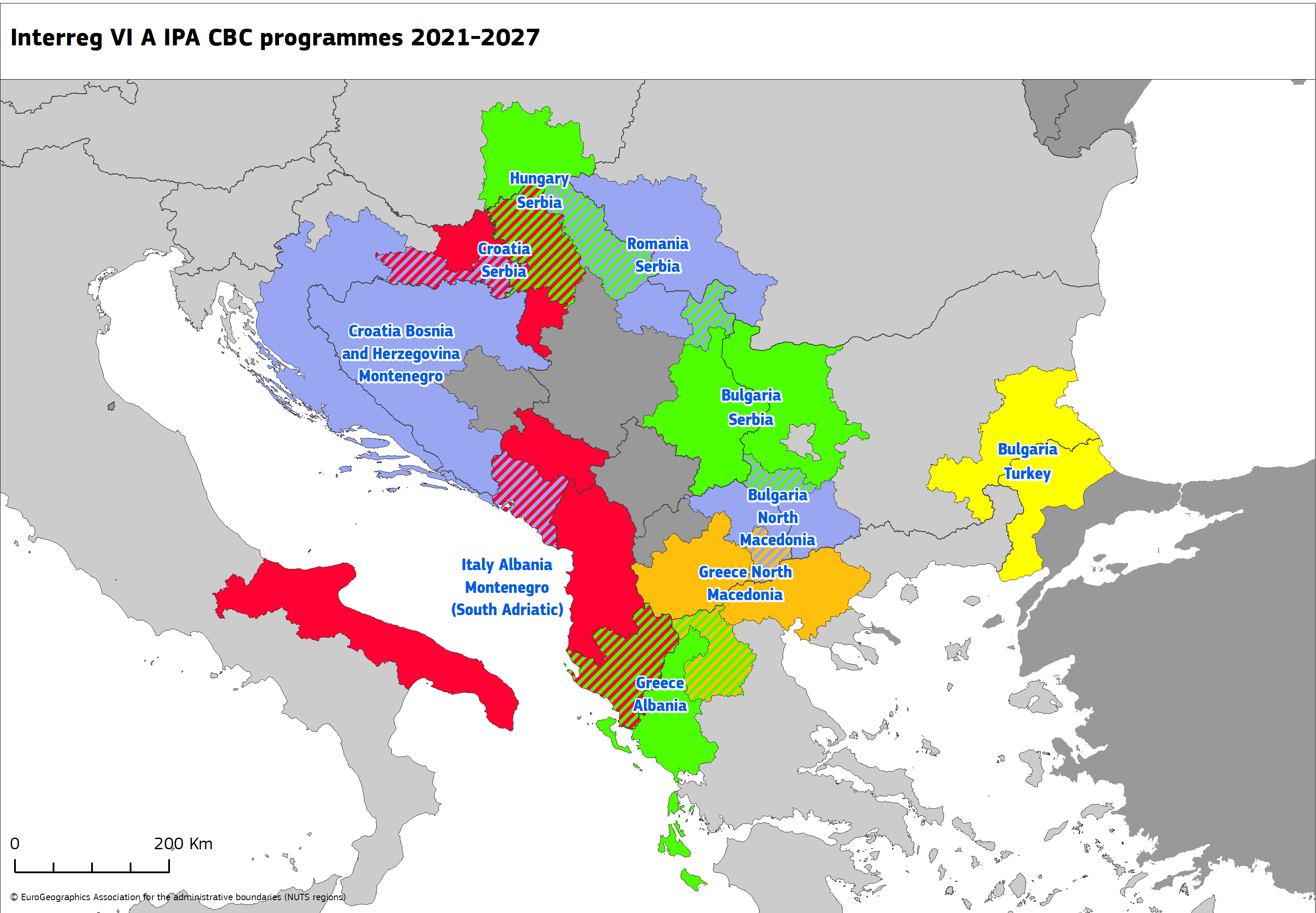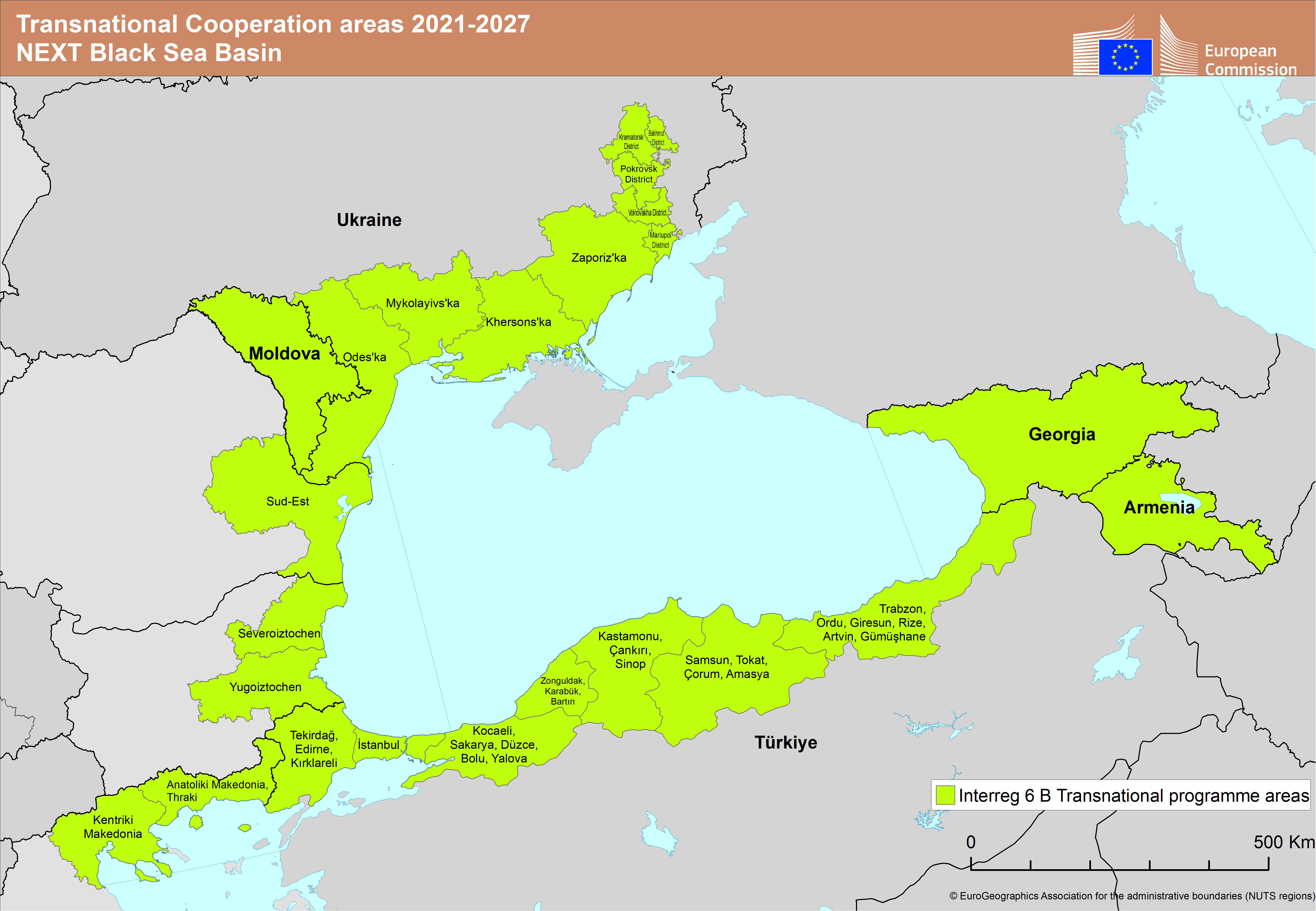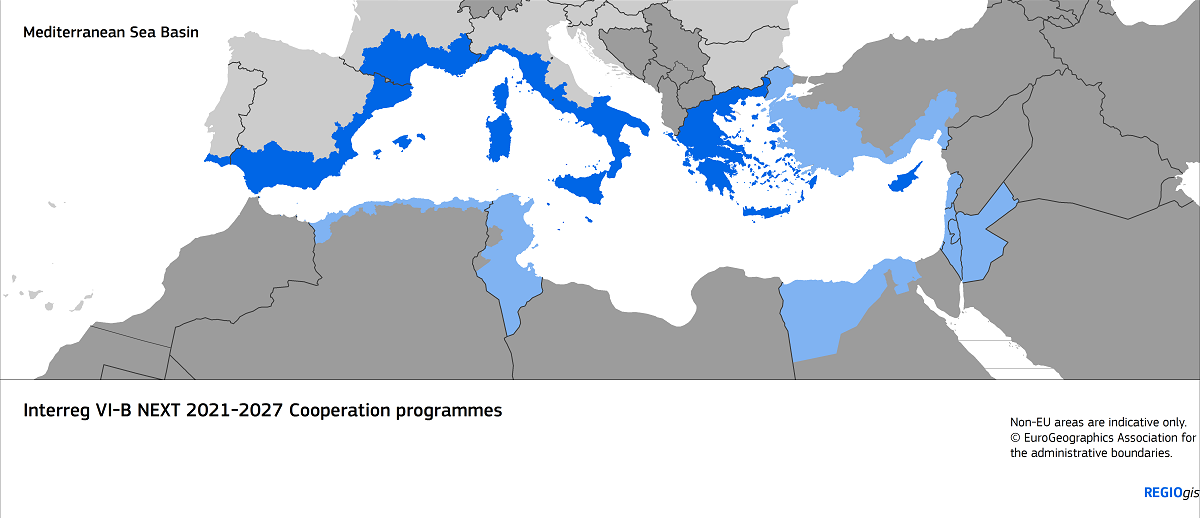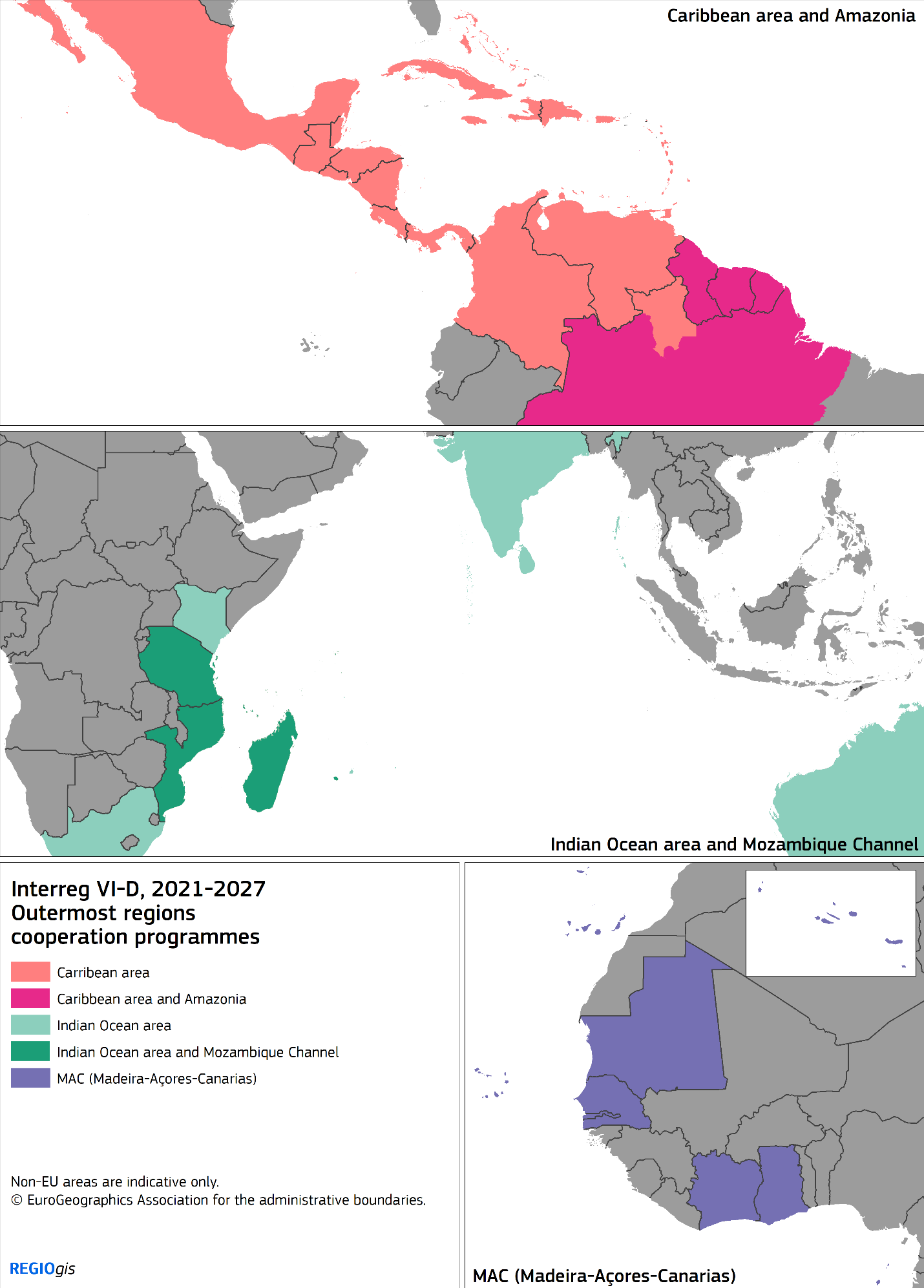Regional development co-operation programmes outside the EU
The European territorial cooperation external dimension promotes sustainable development and good neighbourly relations between EU member states and Enlargement and Neighbourhood countries and between the EU’s outermost regions and their neighbourhoods.
Cooperation on the EU external borders
This cooperation stands on a fully-fledged partnership between EU member states and non-EU countries to establish an area of prosperity and stability and to tighten the links between EU and its neighbours. It pays particular role in the EU’s foreign policy as part of the EU Global Strategy: A Stronger Europe and as a part of the EU-Turkey relations.
The EU external cooperation programmes covers EU and its neighbouring countries and contribute to the objectives of the three EU policies: Cohesion policy, Enlargement policy and Neighbourhood policy.
Common feature of these programmes is their objective to addresses socio-economic challenges of remote and less developed areas by strengthening the capacities of regional and local authorities and creating of networks of apolitical cooperation among local stakeholders.
Cooperation with Western Balkans and Turkey
The Instrument for Pre-accession Assistance (IPA) prepares for future membership of the Union and support the accession process;
Interreg IPA contributes to the EU headline ambitions (Green Deal, a Stronger Europe in the World) by fostering cooperation of Member States with Western Balkan countries and Turkey. It helps acceding countries to alleviate border obstacles and manage programmes in the same way as Member States are doing.
The EU funding is secured by the European Regional Development fund (ERDF) and the Instrument for Pre-accession Assistance (IPA). READ MORE
Cooperation on the EU external borders
Participating countries:
- Bosnia and Herzegovina
- Bulgaria
- Greece
- Croatia
- Italy
- Kosovo*
- Hungary
- Republic of North Macedonia
- Romania
- Albania
- Serbia
- Turkey
- Montenegro
* This designation is without prejudice to positions on status, and is in line with UNSCR 1244 and the ICJ Opinion on the Kosovo Declaration of Independence.

Cooperation with EU Neighbourhood region
The EU supports territorial cooperation among Member States and non-EU countries from East and South Neighbourhood region. Following the Russian military aggression against Ukraine and in line with the EU restrictive measures, the Commission is suspending the cooperation with Russia and Belarus in the European Neighbourhood Instrument cross-border cooperation programmes (ENI CBC).
The Interreg NEXT programmes are financed by the European Regional Development Fund (ERDF) and the Neighbourhood, Development and International Cooperation Instrument (NDICI), and co-financed by the participating Member States and partner countries. READ MORE
Participating countries:
- Armenia
- Bulgaria
- Belarus (1)
- Greece
- Egypt
- Spain
- Estonia
- France
- Georgia
- Israel (2)
- Italy
- Jordan
- Cyprus
- Latvia
- Lebanon
- Lithuania
- Hungary
- Moldova
- Norway
- Palestine (3)
- Poland
- Portugal
- Romania
- Russia (1)
- Finland
- Slovakia
- Sweden
- Tunisia
- Turkey
- Ukraine
- Malta
(1) The participation of Russia and Belarus to the programming of the 2021-2027 Interreg NEXT programmes is suspended.
(2) In accordance with the EU policy, the CBC programme does not apply to the territories occupied by Israel since June 1967. Thus, in accordance with the Guidelines on the eligibility of Israeli entities and their activities in the territories occupied by Israel since June 1967 for grants, prizes and financial instruments funder by the EU from 2014 onwards (OJ C 205/9 of 19.7.2013) only Israeli entities having their place of establishment within Israel’s pre-1967 borders are considered eligible for EU funding. In addition, activities of Israeli entities funded by the EU must not be carried out in the territories occupied by Israel since June 1967.
(3) This designation shall not be construed as a recognition of a State of Palestine and is without prejudice to the individual positions of the MS on this issue.



Cooperation between EU outermost regions and their neighbourhoods
Interreg Outermost Regions deepens relations between the EU’s remote regions and their neighbourhoods. READ MORE
For 30 years, INTERREG's objective has been to support the harmonious development of the Union's territory at different levels by supporting cross-border cooperation, transnational cooperation, interregional cooperation and cooperation for the outermost regions (ORs). Since 2014, INTERREG has its own regulations. With the new regulation 2021-2027, the specificities of the Outermost regulations are recognised trough a specific strand (Strand D).
The objective of strand D created for the outermost regions is to allow them to cooperate with neighbouring countries and territories in the most efficient and simple way. Under this strand, calls for proposals can be launched for combined funding under the ERDF, the Neighborhood Instrument, Development Cooperation and International Cooperation (NDICI) established by Regulation (EU) 2021/947 of the European Parliament and of the Council.
The strand D concern cooperation within defined geographical areas:
- Amazonia
- Caribbean
- Middle Atlantic / Gulf of Guinea (MAC)
- Indian Ocean
- Mozambique Channel
The financial amounts represent 3.5% of the INTERREG amount, over EUR 280 million.

